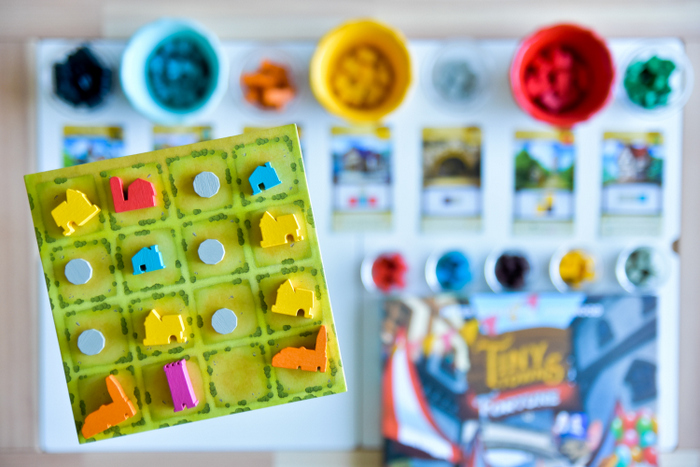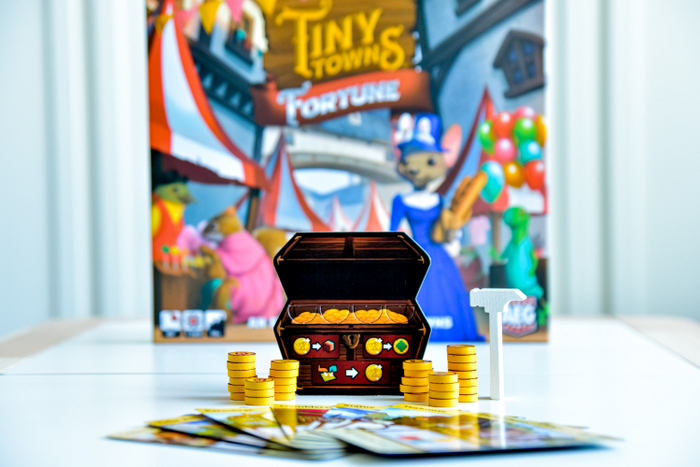
Our family loves puzzles and we really love games to hat have a puzzle-like feel. Manipulating shapes and spaces to strategically fit things together is a favorite gaming element of ours, and Tiny Towns is one of the best games that does this!
The original Tiny Towns is a fantastic puzzle challenge to use resources in a variety of configurations to build and get points. The struggle is that you have to take the named resource, even if it totally messes up your town! Tiny Towns: Fortune, an expansion to the original game, adds some complexity but also gives players flexibility in resource selection, making the game even more fun!
The Fortune expansion is set up just like the regular version. Each player gets a Monument card and can build one Monument for extra points or special abilities throughout the game.
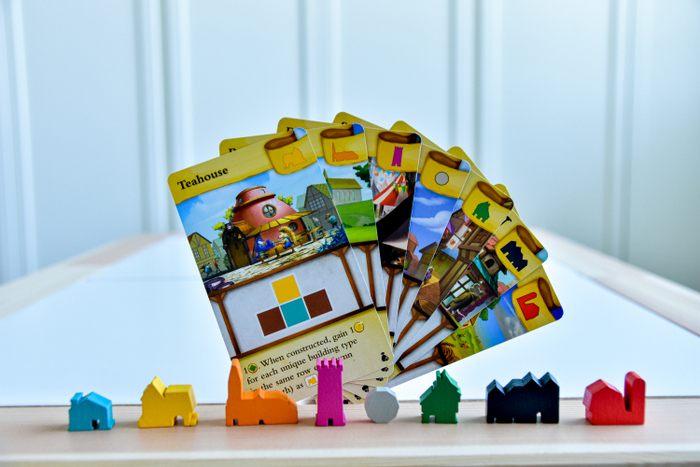
Twelve new building cards (2 of each type) and 10 new Monument cards are included in Fortune, giving some interesting new ways to build and earn points.
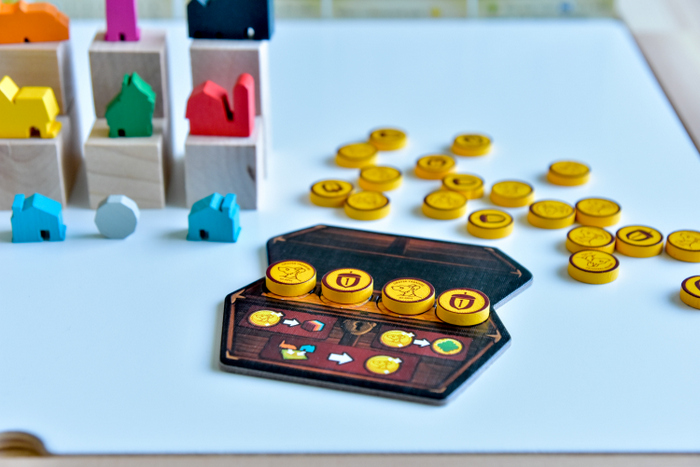
The big difference though, is that each player also gets a Treasure Chest board and can earn and use coins. Players earn 1 coin for constructing 2 or more buildings in a single round. This can be difficult since it requires more space on the board, but earning the coins is worth it!
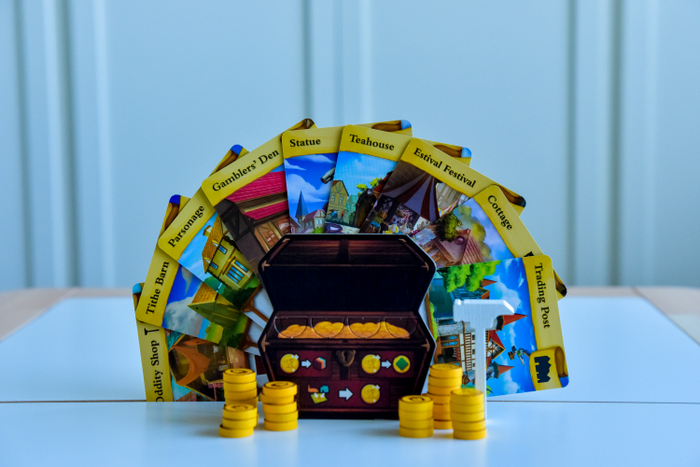
Players can keep a maximum of 4 coins in their chest at a time.
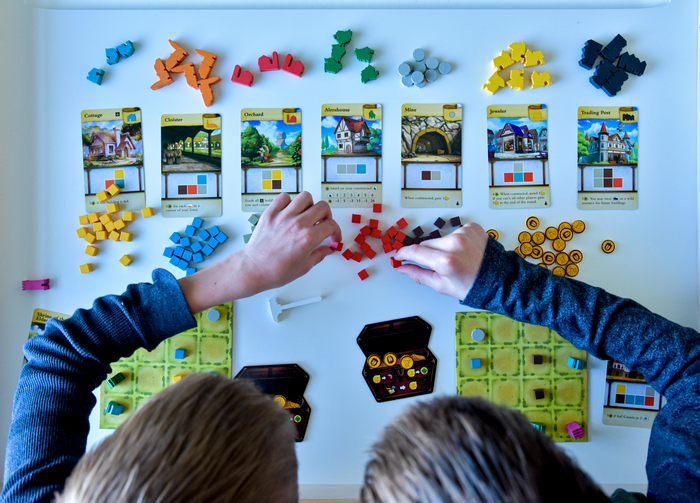
The Master Builder names a resource that everyone must place in their town each round, but players can choose to spend 1 coin to place a different resource than the one named. Leftover coins at the end of the game are worth 1 point.
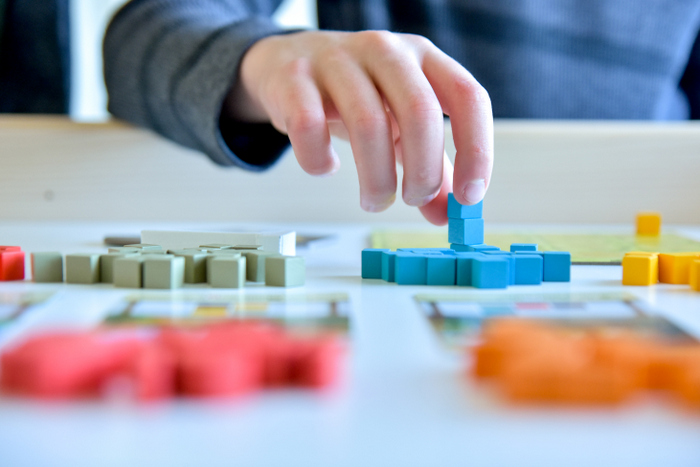
As previously stated, the Fortune expansion provides a little more flexibility for placement. Players can save up building resources to build multiple buildings in a single round to earn coins and then NOT have to place resources that foil their building plans. It’s a great option, and we LOVE playing this way!
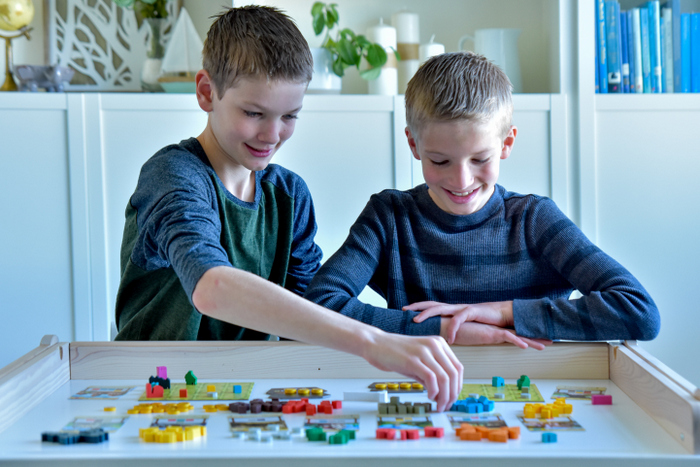
Tiny Towns works well as a 2-player game and is fantastic, of course, with up to 6 players. We love that this game accommodates so many players!
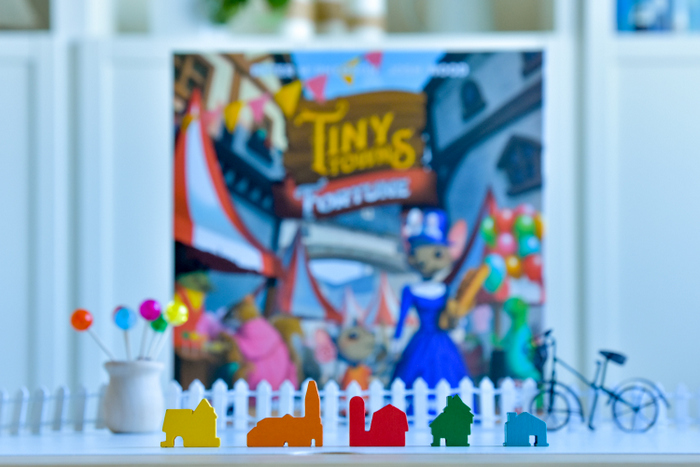
Tiny Towns is a great way to strengthen spatial manipulation skills, visual acuity, strategy, logical thinking, and quick problem solving. Players have to be able to quickly alter their plans to accommodate unwanted resources and make the best of resources you weren’t planning on. It’s a good skill for us all to practice!
Thanks to AEG for sharing this fantastic gameschooling game with us!
